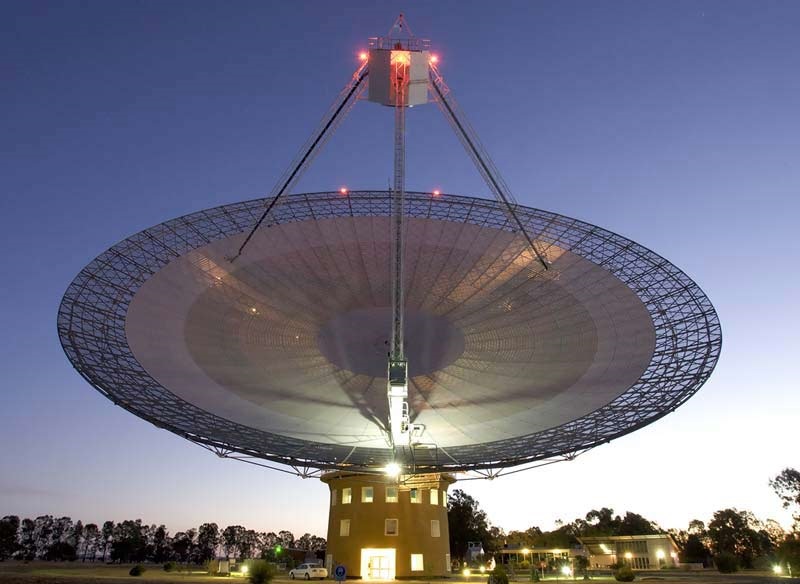
President Donald Trump’s announcement earlier this year that the US planned to establish a space force prompted discussion about the overt militarisation of the rhetoric surrounding the international use of space.
While some have argued that the proposed space force is nothing more than a rebranding exercise, others contend that it’s a positive, necessary step. And there are those who see it as opening a new field of conflict and making war more likely or as a threat to the very tenets of international space law.
Whatever one’s view, it’s clear that something has changed in the last decade. Space 2.0 is characterised by increasing space accessibility and a growing commercial space industry, against a backdrop of shifting power balances in the Asia–Pacific region. How should Australia respond to these challenges?
Space law is a complicated mixture of international treaties, resolutions and customs, among other elements. The nexus between treaty and custom is a nebulous zone; interpretation is required within different and potentially conflicting political and geopolitical contexts. The UN Outer Space Treaty is a dynamic instrument that is continually shaped by the network of institutions and individuals who enact the norms of international law.
Space law intersects with domestic policy and trade through international and national organisations and individuals. These parties are both the recipients and the sustainers of international customs, and their behaviour affects the system of international law.
That’s why the militarised discourse about space that continues to dominate social and traditional media threatens the international framework and principles that support the peaceful, cooperative use of space. It is normalising a conception of space as a warfighting domain.
It’s not in Australia’s interests for this shift in the characterisation of space to continue. Our space industry is small, and our defence capabilities in space remain underdeveloped compared to those of other nations.
Now that we have a dedicated space agency, we have an opportunity to influence international behaviour through strategic space diplomacy by overtly espousing a non-militaristic approach. The key question is whether the Australian Space Agency’s strategic focus should be on science or on commerce.
Current conceptions of the space agency suggest a definite tilt to the latter. The Department of Industry’s review of Australia’s space capabilities sets out a strategy for tripling Australia’s domestic space industry to $10–12 billion by 2030. A key focus of the Australian Space Agency is to foster international links to facilitate economic opportunities for Australia’s domestic space industry. Undoubtedly, an increased focus on and investment in the growing space sector will provide opportunities for Australian businesses and for our economy.
However, international cooperation through commercial activities in space cannot be as effective in preserving the tenets of international space law as science.
The term ‘science diplomacy’ has been around since 2009. It works because ideas about international law, like ideas about science, are socially constructed; the ‘cartoon image’ of science serves a vital normative purpose. While not necessarily accepted by scholars of science and technology studies as being ‘correct’, Merton’s norms (communalism, universalism, disinterestedness and organised scepticism), first published in 1942, are nonetheless a reasonable description of the way that science is often viewed by society. In Antarctica, another internationally governed area, science is the vehicle through which models of cooperative and peaceful cross-border interaction are reinforced so that they actively support the continuation of legal frameworks.
But if scientific norms align neatly with the aims of international treaties, commercial activity does not. Whereas ‘good science’ is disinterested, ‘good commerce’ is necessarily interested: businesses owe it to their investors, legally, to act in their financial interests and seek to profit. It is secretive and competitive, and does nothing to reinforce the sort of international customs that have kept space largely peaceful over the past 50 years.
If we wanted to ensure that space stayed ‘congested, contested and competitive’, we would focus squarely on growing the space economy.
Rather than looking inwards at our domestic industry, our space agency should be leading the world in space diplomacy, using international scientific cooperation to shape the discussion and reinforce the principles of peaceful cooperation. Our good relations with many of the big operators in space and our geographic proximity to rising powers in Asia make us well placed to counteract militaristic discourse. Our relatively small bureaucracies also mean we can be agile when it comes to foreign policy decisions. We can change our approach in response to new information quickly and efficiently.
Science may not be the answer to all global conflict, but the strategic diplomacy that surrounds it—involving the creation of international organisations and cross-border collaboration, made strategic by being integrated with a comprehensive vision of Australia’s long-term national security goals—can go a long way towards preventing escalation of conflicts into space.
This is not to say that we can’t have a thriving space industry, too, but let’s not spend our diplomatic capital on signing business deals and touting start-ups. Peace in space is too important for Australia and for the world. Our national space strategy must prioritise a peaceful future ahead of profit.

